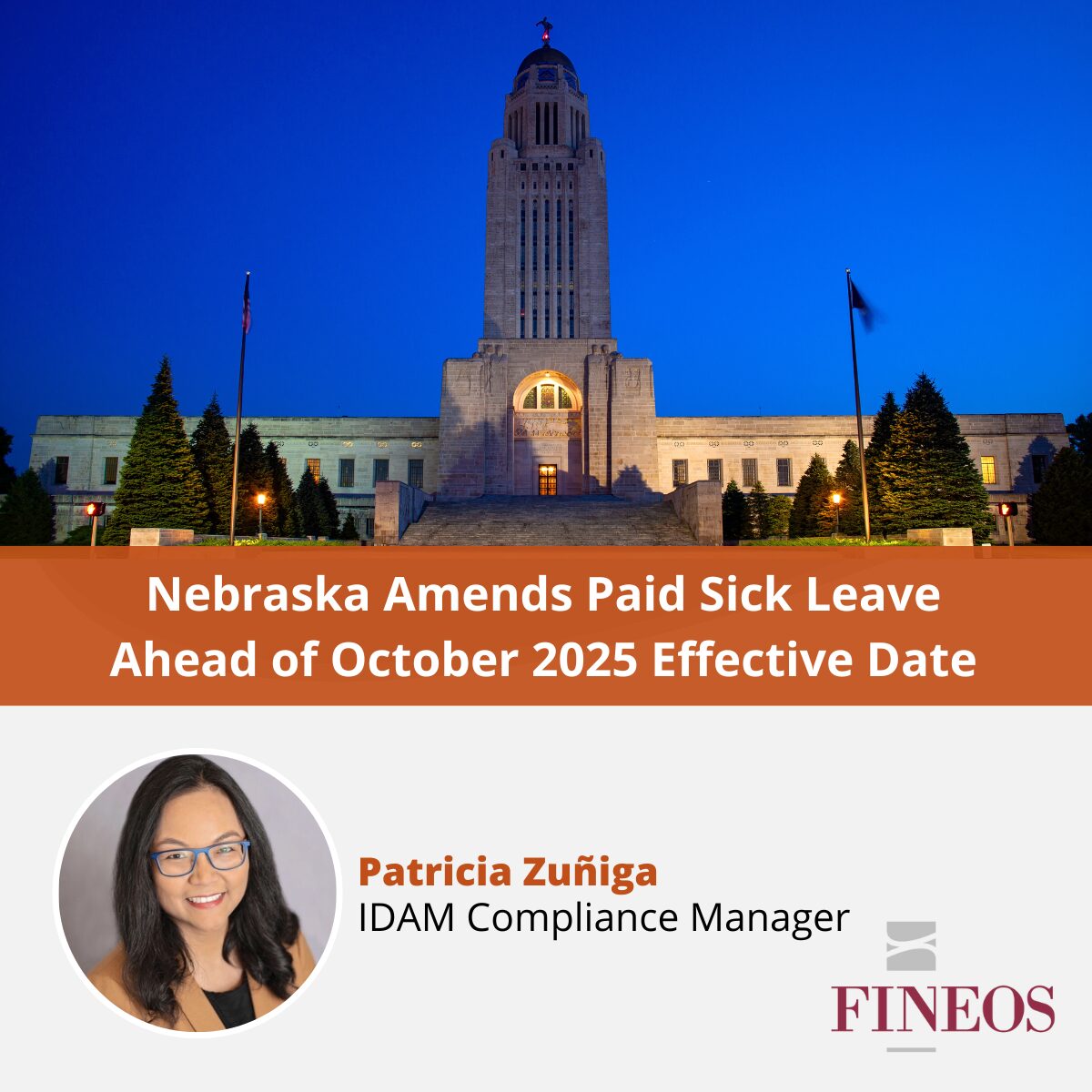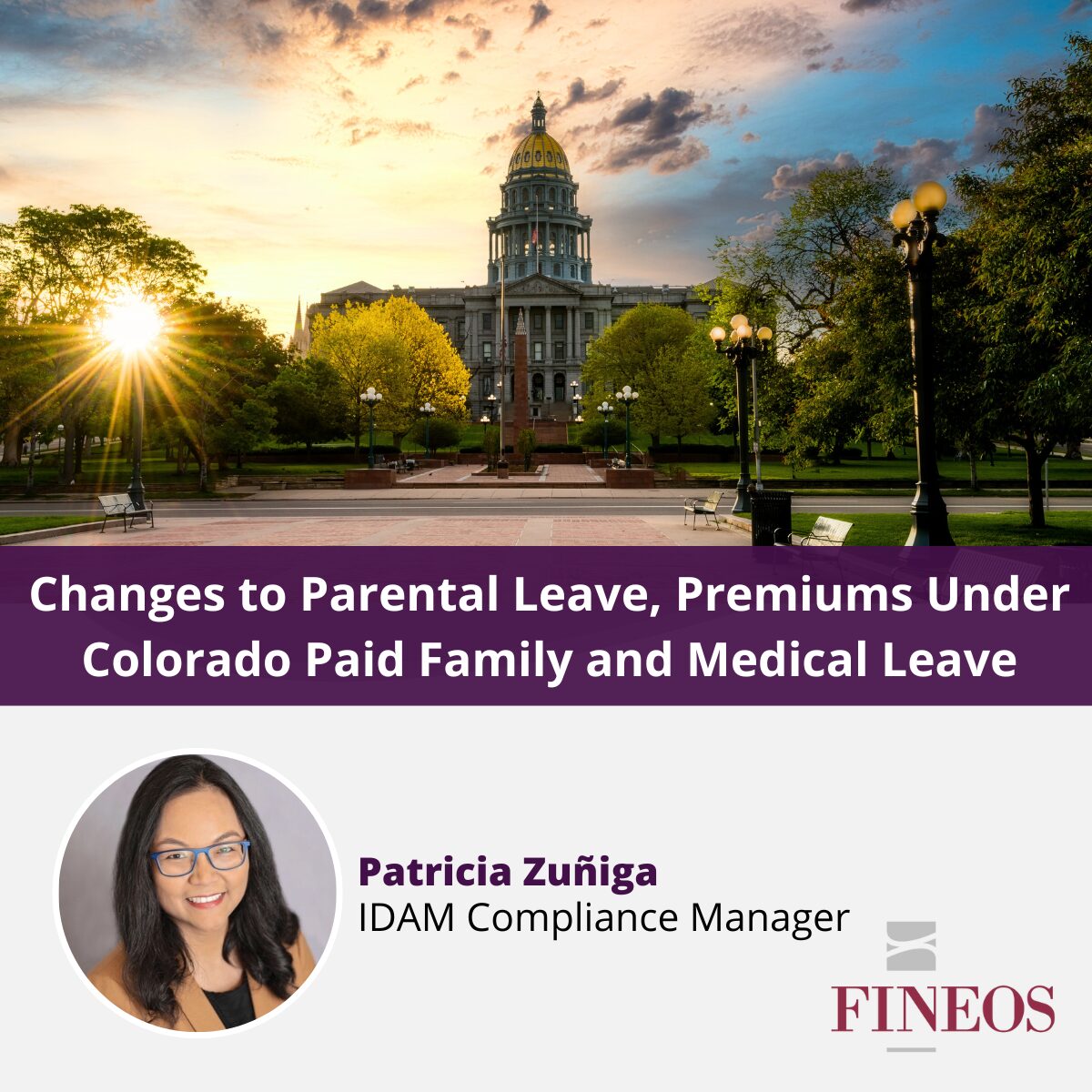While summer is often a time for the state legislatures and regulatory agencies to take a break, this summer season has brought about a flurry of action. Across the nation, legislatures, regulatory agencies, and courts have been busy with activity impacting leave of absence programs. Read on for the latest.
New Hampshire Publishes Minimum Standards for Family and Medical Leave Wage Replacement Coverage
We previously wrote about New Hampshire’s first-of-its-kind state-supported voluntary Paid Family and Medical Leave program. On June 9, the New Hampshire Insurance Department published proposed regulations in Ins 8000, Minimum Standards for Family and Medical Leave Wage Replacement Coverage.
The proposed regulations provide definitions, required policy provisions, prohibited policy provisions, and more. A public hearing on the regulations was held on July 25, and written comments were accepted through Aug. 1.
Carriers who intend to offer New Hampshire PFML policies should review the regulations to determine how they may impact their offerings.
Virginia Provides Guidance About Family Leave Insurance
We previously wrote about Virginia’s new law that establishes family leave insurance as a class of insurance. The Virginia Bureau of Insurance has issued guidance for companies that are seeking to write family leave coverage pursuant to this legislation.
The Family Leave Coverage Document provides information about license requirements, forms and rate filings, and minimum form requirements. Carriers who are interested in offering family leave insurance should be sure to review the guidance as they navigate this new area.
Michigan’s Paid Sick Leave in Limbo
The Michigan Constitution contains a provision that allows voters to use a petition process to initiate legislation. With sufficient support, the state legislature can then adopt the petition-initiated legislation, but the Constitution specifies that adoption must be “without change or amendment,” or it can put the proposal on the ballot in the next general election.
In 2018, Michigan voters successfully initiated two proposals via petition 1) the “Improved Workforce Opportunity Wage Act,” raising the minimum wage to $12.00 per hour by 2022, escalating in the years following and 2) the “Earned Sick Time Act,” requiring employers to provide paid sick leave for their employees – those with at least 10 employees up to 72 paid hours per year, and those with fewer employees, 40 hours paid and 32 hours of unpaid per year.
The legislature adopted both initiatives without change, and they were not on the 2018 general election ballot. However, after the election but in the same legislative session, the legislature amended the laws, and amendments to the new initiatives were signed into law on Dec. 14, 2018.
A previous opinion from the Michigan Attorney General held that the constitution allowed the legislature to adopt a ballot initiative and amend it within the same legislative session, but on July 19 in Mothering Justice v. Nessel, the Michigan Court of Claims disagreed and held that the Michigan legislature violated the state constitution in doing so. In practical terms, this means that the original ballot initiatives would be in effect, and the Michigan minimum wage would immediately increase to $12.00 per hour (from $9.87 per hour) and the paid sick leave law would expand.
Minimum Wage: If the original ballot initiative were in effect, there would be an immediate increase in Michigan’s minimum wage from $9.87 per hour to $12.00 per hour, and the minimum wage would increase annually to account for inflation (the legislature-amended version had a slower escalation with caps). Tipped employees would also receive higher wages as the tip credit for employees would no longer be in effect as of Jan. 1, 2024.
Paid Sick Leave: As described above, the original petition-proposed initiative required most employers to provide paid sick leave to employees with variations depending upon employer size. The enacted legislation instead exempts employers with fewer than 50 employees from providing paid sick leave and only requires employers to provide 40 hours of paid sick time. Additionally, the new legislation removed the provision that prohibited employers from taking retaliatory personnel actions against employees. If immediately in effect, the law would now provide the expanded leave rights as originally passed by the ballot initiative, with the anti-retaliatory language included.
On July 20, the State of Michigan filed an appeal of the Court of Claims decision along with a motion to stay the enforcement of its decision. On July 29, the court decided to stay the enforcement through Feb. 19, 2023, citing concerns around agencies’ and employers’ ability to “immediately accommodate” the enhanced paid sick leave and increased minimum wage.
What is FINEOS doing in response to this decision? FINEOS will update its existing Michigan Paid Sick leave to reflect the expanded entitlement no later than the February expiration of the stay.
San Francisco Enacts Permanent Public Health Emergency Leave, Adding Leave for an Air Quality Emergency
On June 7, San Francisco passed Proposition G, a new ordinance providing paid leave for a public health emergency. Effective Oct. 1, 2022, the ordinance will replace the city’s current COVID-19 Supplemental Paid Sick Leave program when it expires. The ordinance is largely the same as the existing program, with the addition of leave for an air quality emergency.
The ordinance covers private employers with more than 100 employees, and employees who work for a covered employer in the City and County of San Francisco are eligible for leave. Employees can take up to 80 hours of leave per year for the following reasons:
- the employee or a family member has received recommendations or requirements related to a public health emergency.
- the employee or a family member has received advice from a health care provider to isolate or quarantine.
- the employee or a family member has symptoms of and seeking a medical diagnosis, or has received a positive medical diagnosis, for a possible infectious, contagious, or communicable disease associated with a public health emergency.
- the employee is caring for a family member if the school or place of care has been closed, or the care provider is unavailable, due to a public health emergency.
- an air quality emergency, if the employee is a member of a vulnerable population and primarily works outdoors, i.e. a person who has been diagnosed with heart or lung disease, has respiratory problems including asthma, emphysema, and chronic obstructive pulmonary disease, is pregnant, or is age 60 or older.
Employers with employees in San Francisco should ensure their public health emergency leave programs are updated to extend the original rights provided and that leave is also available for an air quality emergency.
How is FINEOS helping carriers and employers prepare for the newly passed laws?
FINEOS is ready to work with carriers to discuss the best practices to manage these changes and adapt to the new developments. Using modern insurance technology solutions like the FINEOS Platform can help insurance carriers remain agile and competitive when leave legislation passes. Learn more about how a modern, integrated disability and absence management (IDAM) solution can help your organization adapt to sudden changes and remain in compliance.


